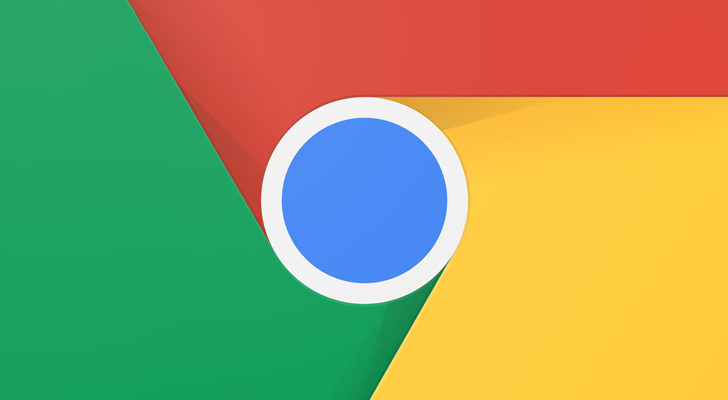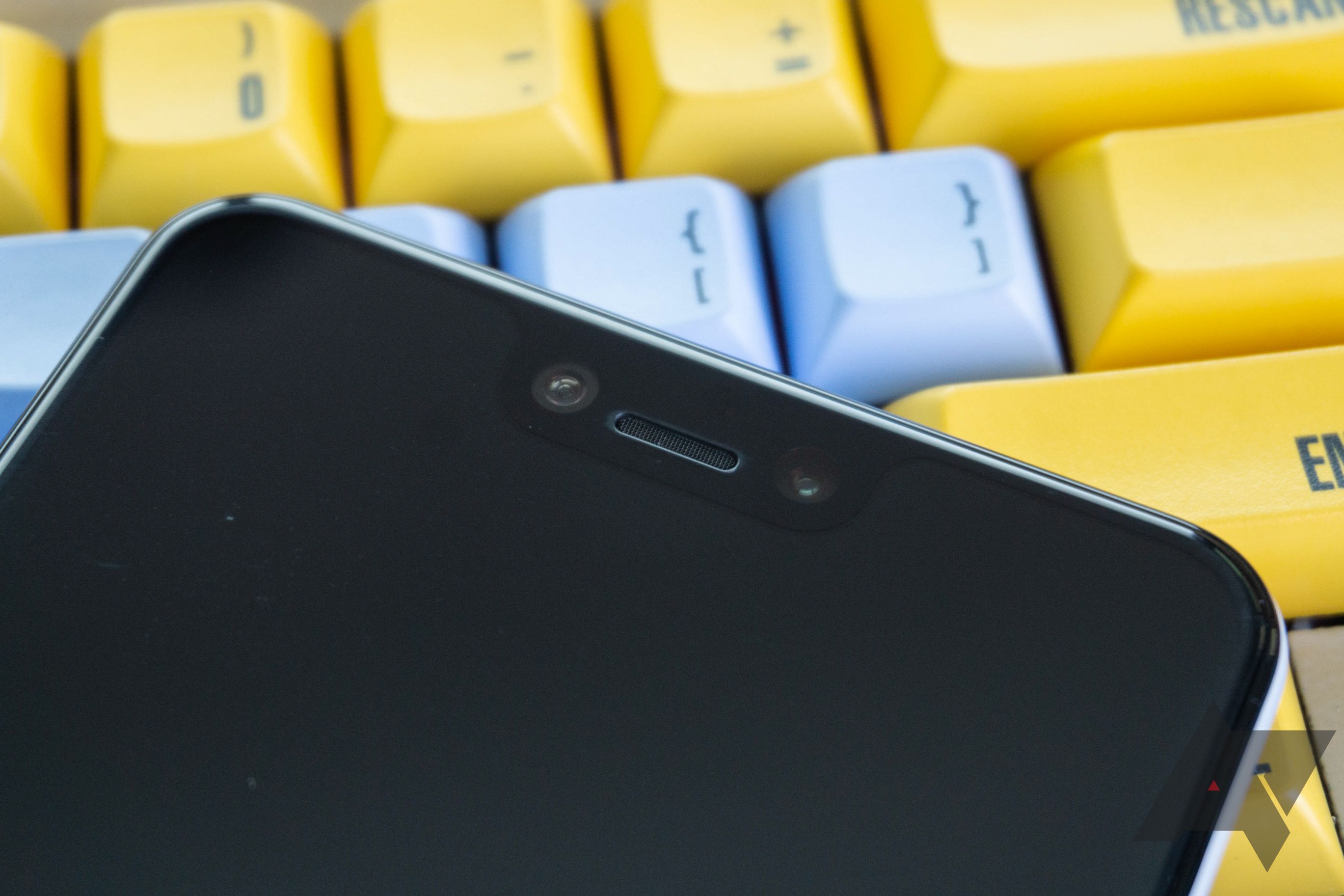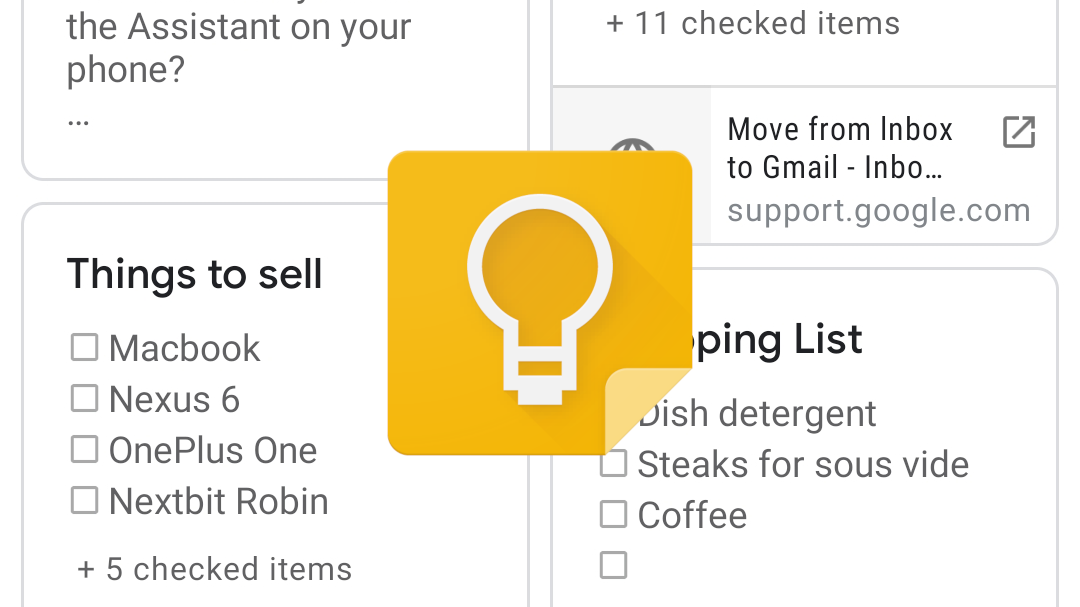About Ryne Hager
Ryne was ostensibly a senior editor at Android Police, working at the site from 2017-2022. But really, he is just some verbose dude who digs on tech, loves Android, and hates anticompetitive practices. His only regret is that he didn't buy a Nokia N9 in 2012.
Latest Articles

Last Friday (the 19th), the @Google account tweeted out that "Winter is coming for Chromebook..." together with a confusing video that showed a clip from Game of Thrones playing inside Slides on a Chromebook. The crossover event seems to have resolved as a new "White Walkers" page is now up on Google's Chromebook site. At first glance, it seems like an out-of-touch marketing effort, or a last minute attempt to use up acquired licensing, but parts of it are at least a little funny.

[Update x2: Likely fixed with December update] Pixel 3 could have a memory management issue that kills background apps
Google's recent batch of Pixels aren't without their issues, and as more phones get in consumer's hands, new reports of problems surface. The latest controversy stems from the Pixel 3's apparent inability to shuffle more than a few apps at a time. In fact, taking a photo is apparently enough to kill Spotify if it's playing music in the background, and in our own tests cycling more than 3-4 apps can force some out of memory. Maybe 4GB of RAM wasn't enough for a flagship phone in 2018 after all, Google?

Google's Assistant underwent a slight redesign earlier this year, and since then it's seen some subsequent tweaks and icon shuffling — the typical incremental tweaks that seem to be a defining part of Google's design process. It could be the herald of a future change, or something as innocuous as a bug, but the keyboard icon for text input on the Assistant seems to be disappearing for some of us, though it still brings up the text entry field if you tap where it used to be.

Over the years, consumer rights when it comes to class-action lawsuits have been eroded by the US Supreme Court. Many companies now mandate that consumers agree to so-called binding arbitration agreements, which can preclude customers from banding together successfully in a formal legal dispute. Thankfully for the proactive among us, that's something you can actually opt out of if you remember to within a certain period of time, and Google has provided a similar opt-out for the Pixel 3.

In light of all the Pixel-related news in the last week, there's a question we've meant to ask our readers, as we're a bit divided on the subject ourselves. Starting with the Pixel 2 and 2 XL, Google introduced a feature it called Active Edge which allowed you to squeeze the sides of the phone to invoke the Assistant. It's a feature which has continued with the latest Pixel 3 and 3 XL, but we're curious how many of our readers actually appreciate and use the extra functionality.

Pixel 3's 'gesture' navigation and new multitasking UI can be disabled — but it'll cost you the Pixel Launcher
Google decided to change things up when it came to navigating around Android, starting with Pie. Although the new "gesture" system was an optional change for updated devices, it's a mandatory part of the Pixel 3 experience. Thankfully for those that dislike Google's forced change to navigation — which has none of the space-saving advantages of iOS' gesture system — the folks at XDA have already figured out how to disable it, but you'll have to give up the Pixel Launcher.

Read update
- In short order, v17.3 has been promoted to Magisk's beta channel. Pixel 3 owners won't need to worry about using the canary releases now — if that's something that bothered them. Magisk developer topjohnwu has also published a changelog which details a few of the particulars behind the Pixel 3-specific tweaks, as well as other patches and improvements that happened with this latest release.
Magisk developer topjohnwu is nothing if not prolific. A mere two days after the Pixel 3's formal launch (and just a day after receiving his own phone), he's already achieved root via Magisk on Google's latest flagship. Those hoping for root on their own Pixel 3s probably won't have much longer to wait for a stable release.

Twitter's pretty well known for silently testing major and minor tweaks to its app on a small audience, and one of our tipsters spotted such a change. It's small, but Twitter is experimenting with changing the floating window popup for additional actions into a bottom-up "sheet" menu.

Chrome may get a new way to share tabs between mobile and desktop, plus incognito media notification changes
In the dark, dank, early days of Android, sending content from your phone to your desktop required either a third-party tool like Pushbullet or Google's Chrome to Phone and companion Chrome to Mobile extension. Thankfully Chrome switched to a convenient "tab sync" multi-device history that allows you to share sites across devices easily. Even so, it's not the most direct system, and according to Chrome Story, a "self share" feature that provides a more obvious workflow may be coming to Chrome. XDA has also spotted another upcoming change which censors the content in media notifications on Android in Incognito Mode.

[Update: Fix coming soon] Google's Pixel 3 latest phone to suffer from photos not being saved
Read update
- Google is working on a fix, see this post for more details.
Google's Pixels have some of the best cameras around in our opinion, but there's one avenue in which that pixel-peeping photo performance can still fall short: Once in a while, that snapshot you remember taking won't be saved. And, so far as we can tell, it's still an issue on Google's new Pixel 3 and 3 XL.

[Update: Listing restored] A DMCA failure: Play Store automated takedowns hit indie app 'Always On Display AMOLED'
Google's history of providing support to Android developers that run into issues on the Play Store is pretty abysmal. If you have the clout of Facebook or Netflix, your whims are individually catered to, but independent developers get the short end of the automated-support stick. Yesterday, yet another indie Android app, Always On Display AMOLED, was kicked to the curb in what appears to be an overzealous, automated DMCA takedown, and in true Google fashion, the affected developer is left without recourse or a means for dispute. The app in question had garnered some 7 million downloads from the Play Store, and a description of its functionality is still live over at F-Droid, a popular open-source repository of Android apps and informal Play Store alternative. The short version is that the app lets you keep additional info like notifications and time on your phone's AMOLED screen if it's equipped with one.Given that functionality, it's a bit unusual that a DMCA by Flipkart — an Indian online retailer — for infringing upon its logo and site content would seem to apply. In fact, according to the explicit text of the DMCA notice received by Always On Display AMOLED developer Tomer Rosenfeld, his app was not included in the DMCA complaint at all. The full text of the notice forwarded to the developer is too long to quote here, but you can review it for yourself on the project's GitHub.[EMBED_TWITTER]https://twitter.com/Rosenpin/status/1052284822952005634[/EMBED_TWITTER]That fact that Rosenfeld's app wasn't included in Flipkart's DMCA request didn't stop Google from both complying with the non-existent request to take down his app and refusing his pleas for support, even when this discontinuity was pointed out by the developer via a message sent in the Google Play Developer Console. If this accident had targeted a developer with a bigger name, you can bet the issue would have been resolved before the app was pulled, but not all developers on the Play Store receive the same level of care from the company. Always On Display AMOLED is just the latest app to be hit by collateral damage from Google's stereotypical, low-quality, mostly automated developer support: By a long shot, this isn't the first time this has happened.In fact, Google's failure to provide adequate support was a topic of some passion on Reddit earlier this week, filling developers and consumers alike with righteous indignation at the Play Store's ongoing transparency and communication issues. For a company that takes a 30% cut from app developers, the very least Google could do is provide them the courtesy of a face to speak to when its automated policy issues result in problems like these.In the meantime, Always On Display AMOLED is still available at both APK Mirror and F-Droid. And so long as Google's developer support continues to be a shining example of what not to do, alternatives like Amazon's Appstore become more attractive for developers with each passing minute, though unfortunately the Play Store remains a defacto monopoly on Android devices — perhaps another subject for the European Commission and other regulating agencies to consider looking into.We've reached out to Google for comment, and we'll update our coverage if any is provided, or if there are any new developments for Always On Display AMOLED.

Earlier today we reported that Google's latest Pixels had some low audio quality when recording videos, but that isn't the only issue to have appeared since the pair of phones launched. There are also widespread reports that the Pixel 3 XL's two stereo front-facing speakers have drastically different volumes. According to a statement made by Google on Reddit, this profound difference in sound balance is intentional.

Local Guides — the name for prolific contributors to Google Maps — get occasional perks from big G after all the photos and reviews they submit. The latest benefit is a three-month membership to Google One, which includes 100 GB of storage (in addition to the other membership perks like occasional credits, discounts, and extra support). The only catch seems to be that not everyone is getting this offer, and it can't always be redeemed.

Google's been on a rampage updating apps to fit its new "Google Material Theme" or "Material Design 2" or whatever you prefer to call it — I've been known to say "Monochrome Menace," myself. Keep Notes (née Google Keep) is the latest app to get the new look, and it's pretty snazzy. Better, if you're too impatient to wait for the update to land, you can download it early over at our sister site, APK Mirror.

Google's Pixel 3 graduates to full sales a day ahead of schedule, while pre-orders arrive
Reviews for the Pixel 3 and 3 XL landed just earlier this week on Monday, with the earliest among us getting shipping notifications just yesterday. That means those that popped for overnight handling have already started receiving their brand new Pixels. In the same vein, the Pixel 3, 3XL, and a handful Pixel 3 accessories over on the Google Store have all also swapped over from "pre-order" to "buy."

[Update: Now in public beta] Opera announces private beta of browser with cryptocurrency wallet and Dapps support
Read update
- The latest public beta for Opera is out (version 48.0.2310.131725) and the changelog references the Crypto Wallet feature, meaning its now open for anyone to try out. The update is available from the Play Store, plus we also have it over at APK Mirror if you'd rather download it from there.
In what seems to be a theme today, Opera has revealed it's launching a private beta for a crypto-integrated version of its browser. This new beta adds a built-in wallet for cryptocurrencies as well as support for Ethereum-based decentralized applications (Dapps, for those in the know).

This was The Big Week here at Android Police. Google finally revealed the much-leaked Pixel 3. Historically, the Pixels have been some of the most popular devices among our readers. Even though criticism of this year's phones seems a bit stronger, it's easy for a vocal minority to drown out the silent majority. So now it's time to ask the question: Did you pre-order one of Google's new Pixels?

Which Pixel 3 features are coming to older Pixel phones (and which will remain exclusive)
Google's Pixel 3 and 3 XL didn't pack a whole lot of hardware surprises, considering the unceasing deluge of leaks over recent months, but the software was another story. There were plenty of new camera features shown off at the Made by Google 2018 event, with oodles of machine learning magic to go around. Unfortunately for owners of older Pixel phones, not all of these new features will be coming to older handsets. For your convenience, we put together a list of all the major software changes that will (and won't) be coming to previous models.

[Update: Fixed] Pre-registration on the web version of the Play Store is broken for many
Read update
Usually, pre-registering to be notified of an app's release is a simple click of a button over on the Play Store, but for some reason, that usually straightforward process seems to have hit a snag. For many, selecting pre-register on a Play Store app listing doesn't actually appear to do anything. On refresh, the relevant button flips right back to say "pre-register" again.

The Settings menu/app on Android phones has evolved quite a bit in recent years. Starting in Android 8.1 it got a search bar that made digging for individual settings a bit easier, and in Android N it got suggestions to help encourage you to enable things like a lock screen, finish the setup process, or explore additional customization options. Google even reserved some secret sauce for search and suggestions on its Pixels, and now it's breaking that out into its own app called Search Suggestions.

